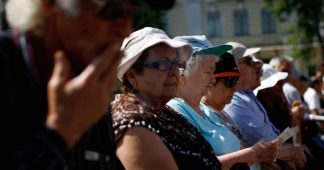By David Cox
25th June 2020
Amid wide unemployment during Covid-19, basic income schemes have gained fresh relevance. A successful Canadian scheme that’s over four decades old could provide a road map for others.
Evelyn Forget was a psychology student in Toronto in 1974 when she first heard about a ground-breaking social experiment that had just begun in the rural Canadian community of Dauphin, Manitoba.
“I found myself in an economics class which I wasn’t looking forward to,” she remembers. “But in the second week, the professor came in, and spoke about this wonderful study which was going to revolutionise the way we delivered social programmes in Canada. To me, it was a fascinating concept, because until then I’d never really realised you could use economics in any kind of positive way.”
The experiment was called ‘Mincome’, and it had been designed by a group of economists who wanted to do something to address rural poverty. Once it was implemented in the area, it had real results: over the four years that the program ended up running in the 1970s, an average family in Dauphin was guaranteed an annual income of 16,000 Canadian dollars ($11,700, £9,400).
With unemployment likely to mount in the wake of Covid-19, the concept of introducing a basic income is once again back in vogue on both sides of the Atlantic.
Why did these economists start Mincome those four decades ago? They wanted to see whether a guaranteed basic income for those below the poverty line could improve quality of life – a grand economic idea that had been around since the Enlightenment, but had barely been tested in practise.
As one of just a handful of real-life basic income trials that has taken place over the past half century, little did they know that more than 40 years later, this experiment would be at the centre of the discussion regarding the merits of introducing basic income on a larger scale.
Read more at www.bbc.com











